Pakistan
No choices, no options
After an American intelligence report stated that Saudi Prince Mohammad Bin Salman was directly involved in the murder of Washington Post columnist and journalist Jamal Khashoggi, the US State Department placed restrictions and travel bans on 76 individuals belonging to the desert kingdom.
They were responsible for the murder, the State Department said.
Pakistan, however, immediately rejected the report and stood by its old ally.
Questions are being asked now, whether standing by Saudi Arabia instead of the only super power in the world, was a wise thing to do.
There are no permanent friends nor permanent enemies in the world of International Relations. Permanence is granted only to benefits. In our foreign policy, money, whether in the form of foreign aid or in the form of remittances, constitutes a very important cornerstone. Pakistan’s Achilles heel, if you will.
During the past 7 months, remittances have been rising steadily, now averaging about $2 billion monthly or more. From July last year till January, a record increase of 24.9% saw the amount reach $14.2 billion.
Approximately 60% of this amount is sent from Gulf countries, mainly Saudi Arabia and United Arab Emirates. Between July and December 2020, the country received $4 billion from the former and $3 billion from the later. A combined $1.2 billion came from the other gulf countries. One of the reason for this increase is the preference for banking channels instead of hundi. “Roshan Digital Accounts” have made it easy for the diaspora to send money back home. I am happy that in just six months, over 86000 accounts were opened and $550 million made their way over to our banks.
More than 9 million Pakistanis are settled or working abroad. If just half of them open these accounts, then a sizable amount will start pouring in, providing much needed stability to our foreign reserves.
Perhaps it is now easier for the reader to understand why Pakistan stood by Saudi Arabia. Its not just about the brotherly or friendly relations between two Islamic countries but also the much needed foreign reserves. At no cost whatsoever, will Pakistan spoil its equation with the desert kingdom. Especially not now when it is going through a particularly rough patch. Loans from fleecing international organisations such as IMF and ADB have become a given; we just cannot survive without them.
Just recently, Pakistan revived the IMF program of $6 billion, implementing harsh conditions which were a prerequisite for the loan. Foreign loans have now reached the sum of $113 billion.
Can we afford to oppose Saudi Arabia? Do we have a choice here? No. Not in such a severe financial crunch.
Business
IMF’s schedule till April 29 excludes Pakistan's economic review
Pakistan has also requested to send a review mission of the IMF to Pakistan in the next month of May to decide the details of the bailout package for the next three years.
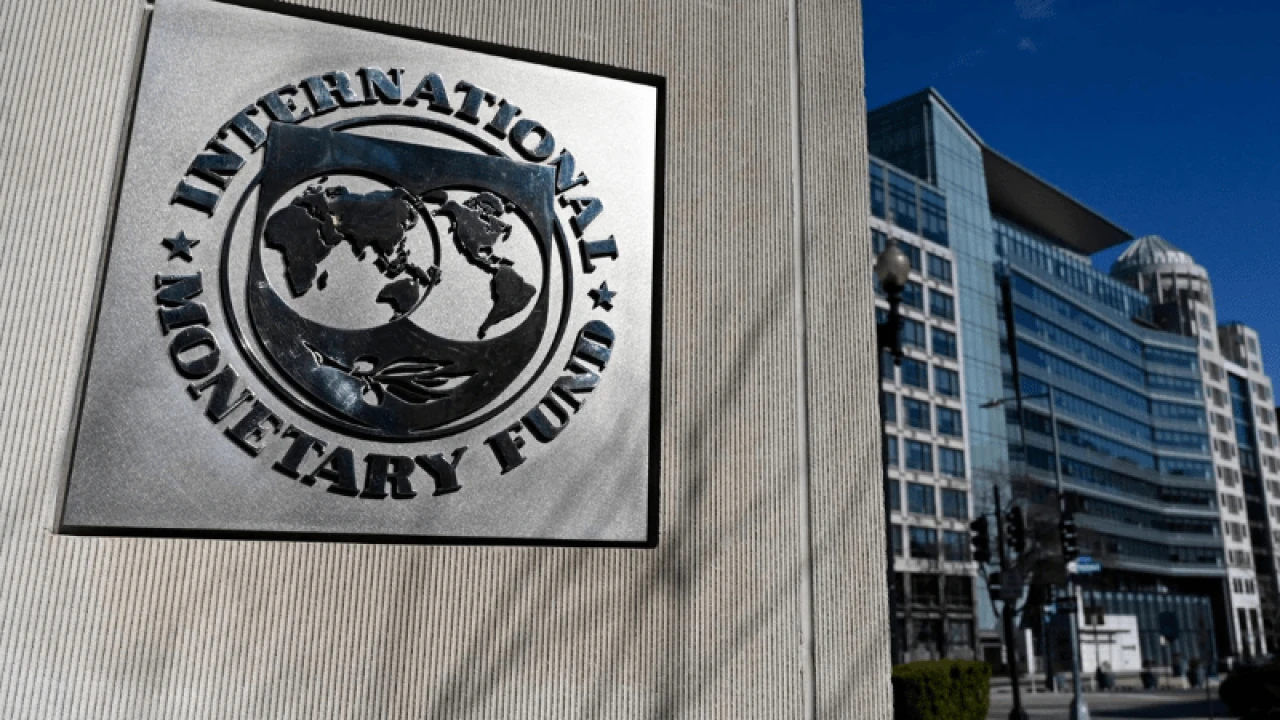
Washington: The International Monetary Fund (IMF) has released the meeting schedule till April 29, which does not include Pakistan's economic review.
According to the details, Pakistan has also made a formal request to the IMF for the next bailout package of six to eight billion dollars.
Apart from this, Pakistan has also requested to send a review mission of the IMF to Pakistan in the next month of May so that the details of the bailout package for the next three years can be decided.
The Executive Board of IMF has released the meeting schedule till April 29, which does not include Pakistan's economic review, while the staff level agreement between Pakistan and IMF was reached on March 20 last month.
With the approval of IMF Executive Board, Pakistan will receive the final tranche of 1.1 billion dollars after which the standby arrangement of $3 billion will end.
It is pertinent to note that a day ago, the IMF had emphasized that prioritizing reforms to revive the Pakistani economy is more important than getting a new loan package.
The IMF official's comment came after Finance Minister Muhammad Aurangzeb's recent announcement that Pakistan was pursuing a significant and expanded loan package with the IMF.
Pakistan's proposed 24th three-year package with the fiscal fund, if approved, could amount to between $6 billion and $8 billion, which would be the country's largest debt ever.
Business
Finance Minister commends WB’s blueprint to propel Pakistan to High Middle-Income status
The report lays out a clear roadmap for Pakistan to become a High Middle- Income country by 2047, with the potential for the economy to grow from GDP of over US$ 300 billion to US$ 3 trillion.
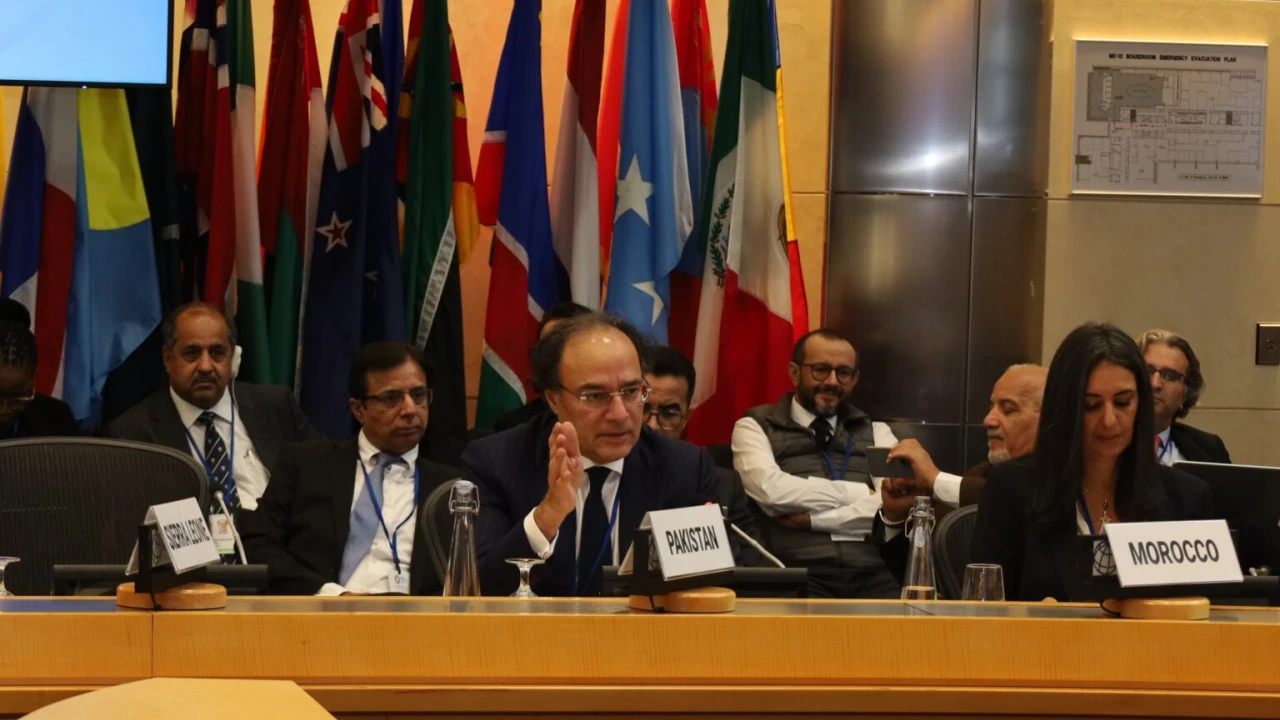
Islamabad: Federal Minister for Finance and Revenue on Friday appreciated the World Bank’s Thought Leadership and its insightful report titled “From Swimming in the Sand to High and Sustainable Growth,” giving a clear roadmap for propelling Pakistan to a High Middle-Income country.
He expressed these views while attending the “Roundtable on Implementing for Faster Results and Greater Impact,” organized by the financial institution on the sidelines of the World Bank Group-IMF Spring Meetings in Washington D.C.
The report laid out a clear roadmap for Pakistan to become a High Middle- Income country by 2047, with the potential for the economy to grow from GDP of over US$ 300 billion to US$ 3 trillion.
It cited that owing to the disruptive effects of the COVID-19 pandemic, Pakistan has diverged from that outlined path, thus, achieving the objective of reaching upper-middle-income status by 2047 will require returning to a path of sustained and focused structural reforms.
The finance minister emphasized that the World Bank’s focus on climate change, digitalization and human development aligned with the government’s priorities. He commended the World Bank’s initiative to launch a single platform to enhance its operational effectiveness.
Meanwhile, the finance minister met with representatives from Moody’s Investor Service and briefed them on Pakistan’s key economic indicators and macro-economic stabilization achieved after entering into a Stand-by Arrangement (SBA) with International Monetary Fund (IMF). He highlighted the government’s key priorities including tax and energy sector reforms, as well as the privatization agenda.
The finance minister indicated the government’s intention to tap international capital markets, focussing on the Middle East and China, to support Pakistan’s economic growth and development. He also addressed questions related to inflation, foreign exchange reserves, debt repayments, external account vulnerability, and domestic liquidity, expressing confidence in the government’s ability to address these challenges and create an environment conducive to sustainable economic growth.
He hoped that Moody’s Investor Service would upgrade Pakistan’s credit rating soon, reflecting the country’s improved economic fundamentals and the government’s commitment to reforms. He also addressed an important “Roundtable with Investors” and highlighted Pakistan’s stable macroeconomic indicators and outline the government’s reform agenda.
Aurangzeb apprised the investors of Pakistan’s declining inflation rates, stable currency, robust growth in the agriculture sector, strong remittance inflows, rising foreign exchange reserves and a buoyant stock market. These are positive indicators, he said, adding underscored the country’s improved economic outlook. He informed them about the government’s intention to enter into a larger and extended programme with the International Monetary Fund (IMF), building upon the successful Stand-By Arrangement (SBA). He also discussed key priorities of the government around taxation, energy sector reforms and privatization program. The finance minister noted that the World Bank’s focus on climate change, digitalization and human capital development aligned well with government’s priorities.
The participating investors appreciated the government’s efforts to stabilize the economy and expressed keen interest in exploring potential investment opportunities in Pakistan. In a meeting with Saudi Fund for Development (SFD) CEO Sultan Abdulrahman Al-Marshad, Finance Minister Aurangzeb discussed potential avenues for enhanced economic cooperation between Pakistan and Saudi Arabia. During the meeting, he briefed the CEO on his recent visit to Saudi Arabia as well as the recent visit of a high-level Saudi delegation to Pakistan.
Finance Minister commends WB’s blueprint to propel Pakistan to High Middle-Income status Both sides reviewed and expressed satisfaction with the progress of ongoing development projects. The finance minister also discussed funding of ongoing projects including Diamer Bhasha Dam and the N-25 highway from Karachi to Chaman. He assured Pakistan would pitch bankable and investable projects to Saudi investors, highlighting the country’s investment potential and favourable policies.
Finance Minister commends WB’s blueprint to propel Pakistan to High Middle-Income status The finance minister met with UK’s Minister of State for Development and Africa Andrew Mitchell and acknowledged the long-standing relations between Pakistan and the Kingdom rooted in shared history and mutual understanding.
He expressed gratitude for the UK’s support in areas such as education, health, financial management and governance. Aurangzeb briefed him on the favourable economic indicators of the country and priority areas of taxation, energy sector and state-owned enterprise (SOE) reforms, highlighting government efforts to create a conducive environment for foreign investment and economic growth, transparency, and inclusive participation.
He also invited British International Investment (BII) to invest in bankable projects in Pakistan and thanked the UK Minister for planning a visit to Pakistan in August 2024.
Meeting with Citibank officials, the finance minister briefed them on the positive economic indicators including buoyant stock market, renewed interest of foreign buyers and institutional flows on the back of Stand-by Arrangement (SBA) signed with IMF.
Pakistan
Saudi Arabia nothing to do with Imran Khan’s ouster: PM’s aide
Maulana Tahir Ashrafi says there is no truth about the rumours regarding closure of booking for private Hajj.
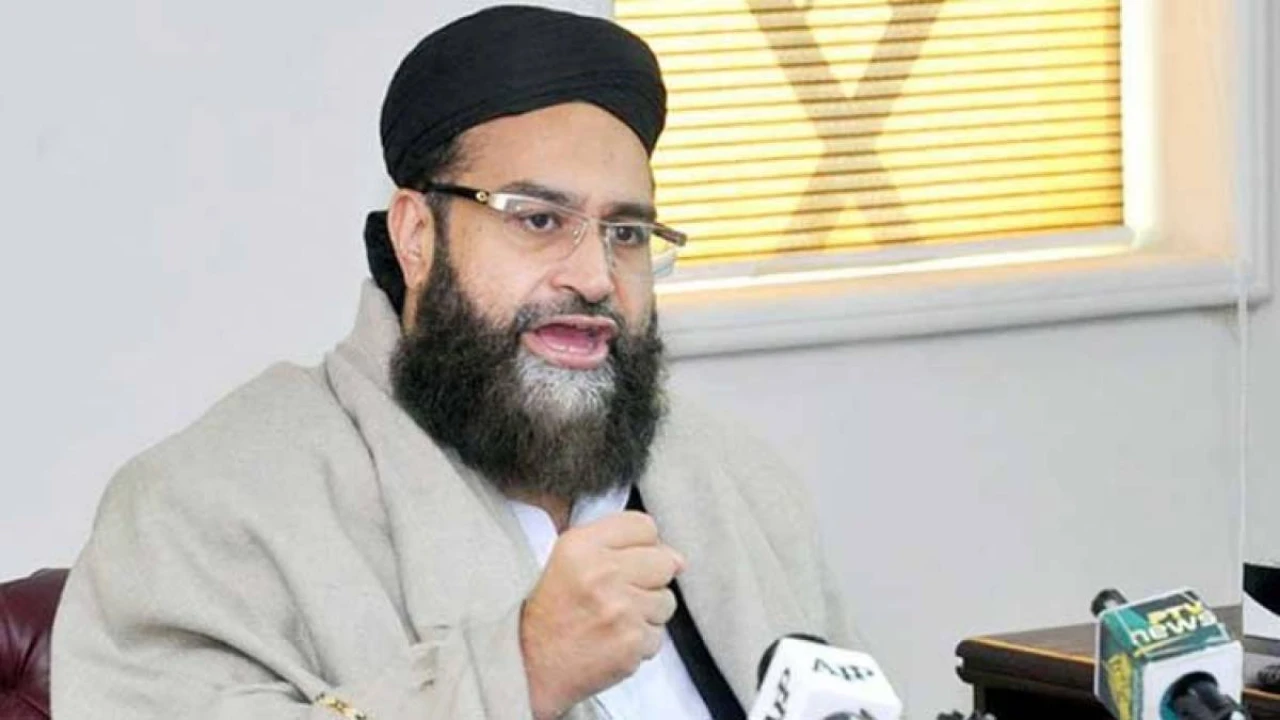
Lahore: Special Assistant to Prime Minister Allama Tahir Ashrafi said that Saudi Arabia is a good friend of Pakistan and it never interfered into its internal or political matters.
“Stop spreading such rumors,” said Allama Tahir Ashrafi indirectly addressing the claim of Pakistan Tehreek-e-Insaf (PTI) leader Sher Afzal Marwat that Saudi Arabia was also behind the ouster of Imran Khan from the power.
The PM’s aide said that such statements were given to anger Saudi Arabia.
“Saudi Arabia has nothing to do with the motion to oust Imran Khan from the power. The arrival of Saudi delegation is a good thing,” said Allama Ashrafi.
He expressed these words while addressing a press conference in Lahore on Friday.
Allam Tahir Ashrafi who is also chairman of Pakistan Ulema Council and the Patron In-Chief Hajj Organizers Association of Pakistan (HOAP), also stated that Pakistan did not want aid, it wanted trade, pointing out that Saudi Arabia always supported Pakistan during the difficult times.
The PM’s aid also rejected the rumours about closure of the booking for Hajj.
“The process of booking for private Hajj is underway, and all facilities will be provided to the intending pilgrims,” he made it clear.
He said that there is no truth about the rumours regarding closure of booking for private Hajj. He stated that they are supporters of the establishment of an independent and autonomous Palestinian state.
“We will never accept Israel,” he said.
He said that they had asked the Saudi government for the appointment of employees for Hajj training, which they provided to Pakistan, and they are extremely grateful to the Saudi government. He said that due to the efforts of the Chief of Staff, the dollar came down, due to which there has been a reduction of Rs 100,000 in the Hajj package. This time, due to the efforts of the Army Chief, 904 companies would take their pilgrims to Saudi Arabia, while 24,000 pilgrims who are going under the private scheme would go through the road to Saudi Arabia, he added.
-
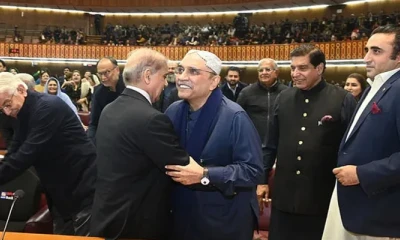
 Pakistan 2 days ago
Pakistan 2 days agoPresident Zardari to address in joint session of Parliament
-
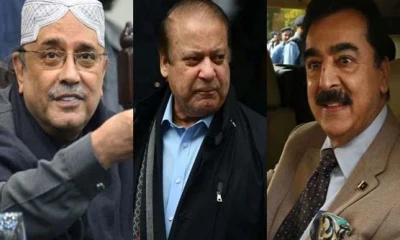
 Pakistan 2 days ago
Pakistan 2 days agoCourt postpones hearing on May 7 on Toshakhana reference
-
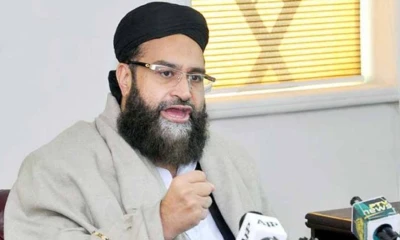
 Pakistan 12 hours ago
Pakistan 12 hours agoSaudi Arabia nothing to do with Imran Khan’s ouster: PM’s aide
-

 Sports 2 days ago
Sports 2 days agoPakistan launches ICC T20 World Cup preparations on Thursday
-

 Pakistan 19 hours ago
Pakistan 19 hours agoCourt approves plea of Bushra Bibi, Imran Khan medical checkup
-

 World 1 day ago
World 1 day ago10 including army chief killed in Kenyan helicopter crash
-

 Sports 1 day ago
Sports 1 day agoBabar Azam wonders amid differences with Shaheen Afridi
-
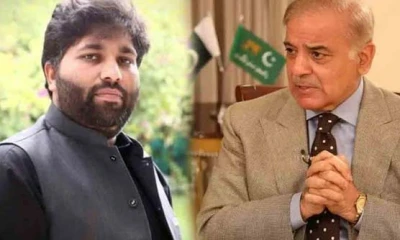
 Pakistan 1 day ago
Pakistan 1 day agoBadar Shehbaz appointed as media coordinator of Shehbaz Sharif













